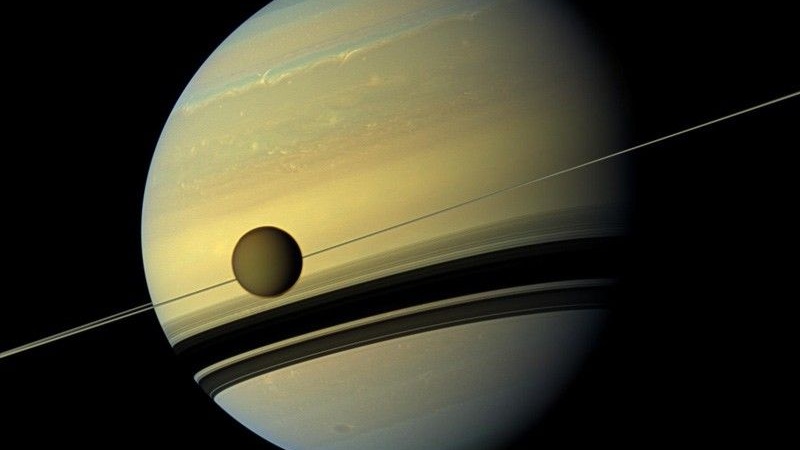Industry Officials Predict Current Procurement Plan Will Delay Galileo
Breaking space news, the latest updates on rocket launches, skywatching events and more!
You are now subscribed
Your newsletter sign-up was successful
Want to add more newsletters?

Delivered daily
Daily Newsletter
Breaking space news, the latest updates on rocket launches, skywatching events and more!

Once a month
Watch This Space
Sign up to our monthly entertainment newsletter to keep up with all our coverage of the latest sci-fi and space movies, tv shows, games and books.

Once a week
Night Sky This Week
Discover this week's must-see night sky events, moon phases, and stunning astrophotos. Sign up for our skywatching newsletter and explore the universe with us!

Twice a month
Strange New Words
Space.com's Sci-Fi Reader's Club. Read a sci-fi short story every month and join a virtual community of fellow science fiction fans!
The heads of Europe's two biggest satellite prime contractors urged the European Commission toaccelerate its procurement of the Galileo satellite navigation system or facewhat might become politically unacceptable delays in getting the servicestarted.
Attending an informationconference of European Union space ministers here July 20-22, the chiefexecutives of Astrium Satellites and Thales Alenia Space said the currentGalileo procurement process, which began July 1 and is scheduled to continuethrough May 2009, isunnecessarily slow.
"The procurement hasbeen substantially delayed and this schedule introduces more delays," saidEvert Dudok, chief executive of Astrium Satellites. "We need procurementdecisions in 2008 to keep to the service introduction date." Dudok madehis remarks here July 21 during a tour of Europe's Guiana Space Center spaceport as part of a delegation that included French Research Minister ValeriePecresse and European Commission Vice President Guenter Verheugen.
Dudok was addressingPecresse because France assumed the six-month rotating presidency of theEuropean Union July 1. Dudok said France, which has identified space policy asone of the key priorities of its six-month presidency, could use its influenceto accelerate the Galileo procurement. Dudok urged Pecresse and Verheugen touse their influence to get the European Commission permission to remove what hesaid were needlessly complicated rules on the Galileo procurement.
In an interview, Dudoksaid it is his understanding the commission has the leeway to bypass some ofits procedures to speed up the procurement as long as the major concerns — fairbidding and inclusion of subcontractors that are not part of the primecontractor's corporate family — and other concerns are respected.
Thales Alenia Space ChiefExecutive Reynald Seznec agreed. In an interview, Seznec said AstriumSatellites, Thales Alenia Space and its major subcontractors have assembleda contract proposal that distributes work throughout Europe and limits theprime contractors' dominance in a way that complies with European Commissionconcerns. "We really believe we have come up with a contracting profilethat responds to the commission's concerns and that we could negotiate a finalcontract much sooner" than mid-2009, Seznec said.
The European Commission,which has assumed overall authority for Galileo and has delegated the EuropeanSpace Agency (ESA) as contract oversight authority, issued detailed procurementrules July 1 for the six Galileo work packages.
Breaking space news, the latest updates on rocket launches, skywatching events and more!
Neither the commissionnor ESA knows how many credible bids will be submitted for each of the six workareas, but the commission has set aside 2.145 billion euros ($3.37 billion) onthe assumption that this budget, in addition to what already has been spent bythe commission and by ESA, will be sufficient.
The six work packages aresystem support, ground mission infrastructure, ground control segment,satellite construction, launch services and operations.
The commission proposesto enter into what it calls "competitive dialogue" with bidders afterreceiving an initial indication of contractor response in mid-August. Furthernegotiations will continue through the fall and into early 2009 before anexpected contractor choice by June.
Only one of the worksegments — building the 26 Galileo satellites not yet contracted — is certainto feature two competing bidders. The commission has set aside a budget of 840million euros for the satellites' construction. Four system validationsatellites are already under construction.
Both Astrium Satellites,with ThalesAlenia Space as a major subcontractor, and OHB System of Bremen, Germany,have indicated they will submit bids on the other 26 satellites.
Asked to respond to theconcerns of Dudok and Seznec, ESA Director-General Jean-Jacques Dordain, whowas part of the delegation to the ministerial meeting here, said some workpackages could be contracted earlier, while others might require the allottedtime.
"If you tell me howmany bids we are going to receive for each work package, I can give you an ideaof how quickly we can conclude the negotiations," Dordain said. "Butthe commission's rules on this are very clear, and I do not see at this pointhow we can save a lot of time from the current schedule."
ESA andEuropean industry officials — and some European Commission experts familiarwith Galileo — already agree privately that the system will not be ready forservice in 2013, and perhaps not 2014 either. But the European Parliamentcontinues to say the 2013 date is important and must be respected.
- Video Player: Galileo Takes Flight
- Satellites at SPACE.com
- GPS Inaccurate During Space Storms

Charles Q. Choi is a contributing writer for Space.com and Live Science. He covers all things human origins and astronomy as well as physics, animals and general science topics. Charles has a Master of Arts degree from the University of Missouri-Columbia, School of Journalism and a Bachelor of Arts degree from the University of South Florida. Charles has visited every continent on Earth, drinking rancid yak butter tea in Lhasa, snorkeling with sea lions in the Galapagos and even climbing an iceberg in Antarctica. Visit him at http://www.sciwriter.us
